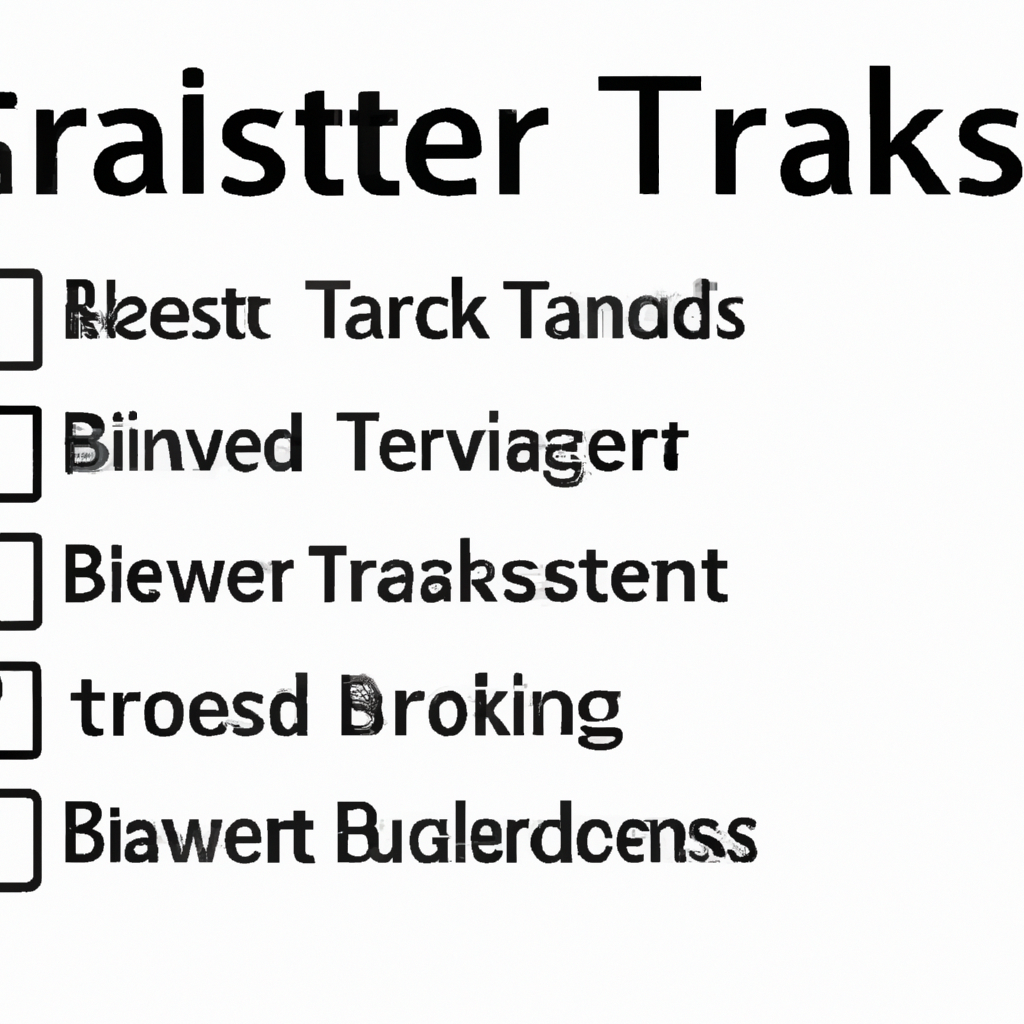Trustworthy Broker Rankings: Making Informed Investment Decisions
Introduction
In today’s fast-paced financial world, finding a trustworthy broker is crucial for successful investing. With numerous options available, it can be challenging to determine which brokers are reliable and reputable. This article aims to guide you through the process of evaluating and selecting trustworthy broker rankings, ensuring you make informed investment decisions.
Researching Broker Rankings
When it comes to assessing the trustworthiness of brokers, relying on reputable broker rankings is essential. Here are some steps to help you conduct thorough research:
1. Identify Reliable Sources
Start by identifying reliable sources for broker rankings. Look for renowned financial publications, reputable investment websites, and industry experts known for their unbiased analysis and evaluations. Some popular sources include Forbes, Bloomberg, and Barron’s.
2. Evaluate Ranking Methodology
Once you have identified potential sources, it is crucial to evaluate their ranking methodologies. Look for transparency in their evaluation process and ensure that the rankings are based on objective criteria. Factors such as customer satisfaction, fees and commissions, trading platforms, research tools, and regulatory compliance should be considered.
3. Consider Multiple Rankings
To gain a comprehensive understanding of broker rankings, consider consulting multiple sources. Each ranking may have its own unique approach and criteria, providing a broader perspective on the trustworthiness of brokers. By comparing rankings, you can identify consistent performers and eliminate any potential biases.
Evaluating Brokers
Once you have gathered information from reputable rankings, it’s time to evaluate individual brokers. Here are some factors to consider:
1. Regulatory Compliance
Ensure that the broker is regulated by a reputable financial authority. Regulatory bodies such as the Securities and Exchange Commission (SEC) in the United States or the Financial Conduct Authority (FCA) in the United Kingdom provide oversight and protection for investors.
2. Customer Reviews and Feedback
Consider reading customer reviews and feedback about the broker. Look for patterns and common themes in these reviews to gauge the overall satisfaction and reliability of the broker. However, be cautious of biased or fake reviews and focus on well-documented experiences.
3. Transparency and Disclosure
A trustworthy broker should provide clear and transparent information about their fees, commissions, and any potential conflicts of interest. Look for brokers who prioritize transparency and disclose all relevant information to their clients.
Conclusion
Selecting a trustworthy broker is crucial for successful investing. By researching reputable broker rankings and evaluating individual brokers based on objective criteria, you can make informed investment decisions. Remember to consider regulatory compliance, customer reviews, and transparency when assessing a broker’s trustworthiness. With careful analysis, you can find a reliable broker that aligns with your investment goals and objectives.

